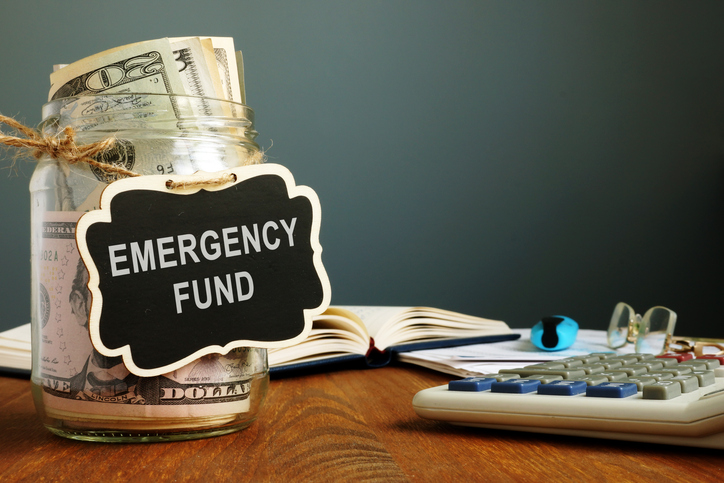Personal finances can take up a lot of our mental space. While keeping up with your bank accounts encourages financial responsibility, it shouldn’t become stressful or obsessive. Help Guide says, “An American Psychological Association (APA) study found that 72% of Americans feel stressed about money at least some of the time.” When we focus too heavily on our finances it can become detrimental to our mental and physical health. Learn more about the multiple ways you can engage with your funds without succumbing to financial stress.
1. Stay Organized
Consider taking inventory of all of your monthly expenses as a way to anticipate how much money you’ll be spending. Money Mentors says, “Understand the finer details of your finances, like when you get paid, when your bills are due, your monthly budget and your savings. Find an organizational tool that works for you―whether that’s in an app, spreadsheet or journal.” This way you can account for non-negotiable expenses and when they’re due, like bills, rent, child support, etc. as well as any money put into savings and spent on leisure. Budgeting your expenses this way can reduce the chance of being blindsided by monthly costs and becoming stressed about what you can or can’t pay.

2. Have An Emergency Fund
Life can be unexpected. Because some costs can’t be anticipated, it’s easy to stress over the unknown. Avoid digging into your savings by creating an emergency fund to pull from instead. This can leave you more prepared for whatever life decides to throw at you. It’s important to start small – depositing even a few dollars each paycheck into this account will build up over time. But eventually you will have a reliable safety net when it comes to unplanned expenses.

3. Automate Your Payments
Tracking your costs not as efficient as it sounds? A great option is opting for automated payments. Citizens Bank explains, “Setting up automatic bill pay can help alleviate the stress of remembering to pay bills and avoid costly penalties for missed payments.” If you tend to be forgetful when it comes to paying bills, automated payments can help lift some of your financial burdens. This is also a great method to building your savings or emergency funds – you can also have funds automatically moved over each month to ensure your accounts are growing.

4. Reduce Debt
Debt is a huge contributor to financial stress. When creating a budget, try including a plan to slowly chip away at what you owe. Just like building up a savings account, debt won’t always go away overnight, but making any attempt at minimizing your debt will help you feel less stressed about it. If you need more professional help, financial institutions like ours have financial counseling services to aid in consolidating debt and creating a savings plan to build up your finances.

5. Reach Out For Help
If your financial stress is all encompassing, reach out to someone you trust about your worries. This could be a friend, a loved one, or a professional. Speaking about your financial stress can help relieve any negative feelings you may have, as well as open yourself up to advice for your situation you hadn’t thought of alone. Allow yourself to speak without fear of judgement, and you may view your financial stress from a different perspective.

While there are certainly lots of economic factors outside of our control that can cause us stress, it’s important to focus on what you can control. If you don’t, you risk falling into a cycle where nothing productive gets done. According to Help Guide, “Financial problems adversely impact your mental health…The decline in your mental health makes it harder to manage money…These difficulties managing money lead to more financial problems and worsening mental health problems, and so on.” Break out of this cycle by adopting smart financial practices and getting the help you need for your financial stress.








